This is the second blog in a series on digital marketing terminology. Our goal as an agency is to speak authoritatively and execute effectively. We desire to guide our clients to success through the world of digital marketing while not losing them in a cloud of jargon. To that end, we are sharing a series of blogs to help familiarize business leaders of every stripe with the terminology they may encounter when engaging in marketing activities.
Previously we introduced terms related to Sales & Marketing and the intersection between the two. Later we’ll address terms related to Website Development & Hosting, Digital Advertising, and finally Graphic Design, Photography & Video.
It’s truly sad to look back and listen to U2 sing their heartfelt “I still haven’t found what I’m looking for.” The chart-topping, mega hit came out in 1987 on their Joshua Tree album, long before the era of the internet, search engines, and supercomputers in everyone’s back pocket.
Had Bono and company risen to fame in a later generation, the song may have been a much-less emotional, “I found exactly what I was looking for on page one of my search engine results here on my smartphone.”

In today’s information age, there really is no reason not to be able to find the answer to just about any question online at a moment’s notice.
It’s all online. Someone has answered it.
If getting on page one of a search engine result page (SERP) is the ultimate goal, then the first step is understanding the terminology in the ever-critical world of Search Engine Optimization (SEO).
The following is intended to be a helpful glossary of terms to empower you to engage the marketing strategy referred to as SEO and better understand what you’re talking about or asking for. While SEO is a highly technical practice, we cover the top-level terminology to keep you informed.
HELPFUL HINT: Looking for a specific term? Use the find functionality on your browser – Cmd+F (Mac) or Ctrl+F (PC) – to quickly find the word or phrase you are looking for. We opted for contextual rather than alphabetical organization when sharing this information.
Search Engine Optimization – The tactic of optimizing your website or web page to improve its visibility and gain higher rankings in organic search engine results to ultimately increase the amount of traffic to your website.
An online application that searches for and identifies items in a database matching a search criteria. Search engines use programs that crawl the world wide web for content which is then indexed in their databases.
Just think Google. While there are alternatives, Google has set the standard and dominated the web for decades now. In the early days of the internet Yahoo and Prodigy made a name for themselves as internet directories. Their ever expanding lists of websites were the way to “browse the web.” Nowadays, we just “google it.”
The tactic of optimizing individual web pages to rank higher in the search engines which typically equates to increased traffic to your website. On page SEO is referring to the content and HTML source code of a page that marketers can optimize for better search ranking and results.
The tactic of utilizing other pages of your site, or with other websites, to help your page to rank higher. Tactics include soliciting backlinks from other sites, creating and updating listings on directories, leveraging social media promotion, coordinating guest posting, public relations efforts, and more.
The tactic of performing website and server optimizations to aid search engine crawlers to crawl and index a site. Technical SEO does not involve any content of a website (ie, words, pictures, etc).
Keywords refer to a word or phrase a marketer can use to create content that will attract their target audience through search engines. Internet users type terms into a search engine and the search engine matches the keywords of the search to content on the world wide web that likely matches the intent of the users search. Google and other search engines recognize keywords in search browsers and SEO content.
The practice of improving a web pages search ranking by enhancing it with the proper use of the target keyword. Keywords should appear in the page title, url structure, headings and body copy.
Refers to keyword searches with more words but also lower search volume. The value in long tail keywords though is that users performing these searches are often looking for something specific which creates an opportunity for a marketer to target individuals with content related to the intent of these longer search queries.
Search Engine Result Page – The pages that feature a list of search results when an Internet user performs a browser search. The goal of every business page is to be on the first SERP and to be as high on the SERP as possible.
Sometimes referred to as answer boxes, featured snippets are selections of content displayed on the search engine results page (SERP) without the user having to visit the page where the content lives. Search engines put these snippets above regular SERP results but below the ads in an effort to expedite a user's search.
The holistic approach to planning, creating, publishing, and managing your content. A great content plan will attract and engage a target audience, meeting their needs while driving business goals.
A pillar page covers all aspects of a given topic on a single page. A pillar page may serve as a central page to link blogs of related topics. Pillar pages can expand as additional subtopics are introduced. This is a strategy to demonstrate to search engines a wealth of knowledge in a given topic.
Historically one of the most influential aspects of SEO, backlinks refer to any external link from another website that links to your website. When a website links to your site, they pass on a bit of their reputation in the eyes of a search engine to your website.
Google Business Profile (GBP) is a free tool that allows you to influence how your business appears on Google Search, Google Maps, and Google Shopping. GBP’s show up on a search engine result page or map and display basic information about your business that you can control. Formerly known as Google My Business.
A file that provides information about the pages, videos, images, and other files on your website to search engines. It indexes the pages of your website that are accessible to users and provides an easier way for crawlers to index your site.
Crawlers, sometimes called spiders, are programs designed to browse and read websites and webpages, by following hyperlinks. Search engines use information a crawler finds, to build indexes of websites.
The process by which a search engine decides whether or not it is going to use the content that it has crawled and how it will be used.
A metric from 1 to 100 that measures how quickly a website page loads. Pages that load more quickly will be given higher rankings in order for search engines to provide a better overall experience to their users.
Refers to the percentage of users who visit a page within your website and leave without engaging any other page. The lower the number, the more engaging your website must be to your target audience.
Refers to the number of visitors to your site from non-paid, natural search results. They clicked on a link that appeared on a search engine result page that was not an ad. See also organic social.
Refers to the number of users who visited the site by typing the URL directly into their browser. This can also refer to the visitors who clicked on the links from their bookmarks/favorites, untagged links within emails, or links from documents that don't include tracking variables (such as PDFs or Word documents).
Refers to the number of visitors who traveled to your website from a link on another website.
Refers to the page on your site that a visitor first encounters whether from a direct link, referral link, or search link.
ADDITIONAL RESOURCES
The Ultimate Dictionary of Marketing Terms You Should Know – HubSpot
The Ultimate All-in-One Marketing Glossary – Digital Marketing Institute
219 Digital Marketing Terms & Definitions You Need To Know – Non-Profit Source
Glossary of Marketing Terms – MarketingTerms.com
Subscribe to our newsletter to follow this series and learn other valuable marketing tips and insights.

Copyright 2025 The Marketing Squad | Privacy Policy | Disclaimer | Terms of Service